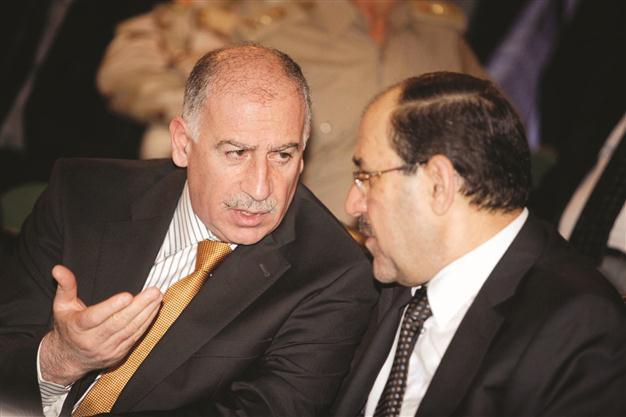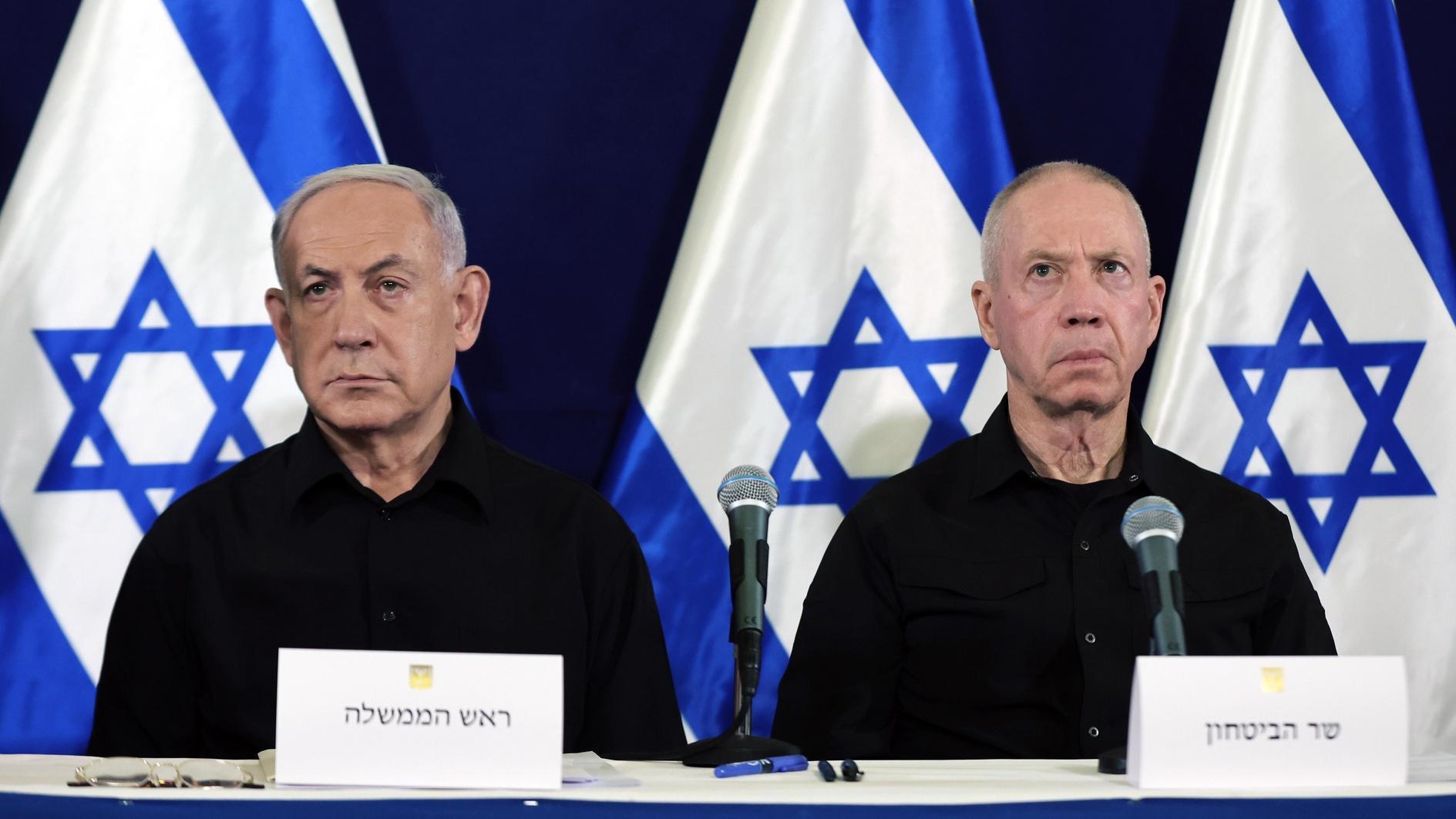Crisis deepens with al-Maliki’s Cabinet move
BAGHDAD

Iraq’s Sunni Parliament Speaker Osama al-Nujaifi (L) speaks to Iraq’s Shiite Prime Minister Nouri al-Maliki. AP photo
Iraq’s Prime Minister Nouri al-Maliki further deepened the country’s crisis yesterday by temporarily replacing ministers who decided to boycott the Cabinet while the U.N. voiced concern over a row that stoked sectarian tensions.Al-Maliki first threatened to sack ministers but then gave up and declared they were on “extended leave.”
“We cannot allow the government’s work to stop,” al-Maliki’s spokesman Ali al-Mussawi said. “Their absence gave us two choices – either fire them or consider them on leave. The Cabinet voted that they were considered to be on extended leave.”
Their portfolios were temporarily handed to other sitting ministers, with the deputy premier responsible for energy Hussein al-Shahristani handling the Electricity Ministry and Planning Minister Ali al-Shukri taking over finance, a Parliament official said, speaking on condition of anonymity.
Trade Minister Khayrullah Babakir Mohammed was handed the industry portfolio, while Higher Education Minister Ali al-Adeeb took over education and Minister of State for Parliamentary Affairs Safaldin al-Safi was charged with provincial affairs. For the past two weeks, Iraq has been engulfed in a political crisis sparked by authorities’ decision to issue an arrest warrant for Vice President Tariq al-Hashemi on terror charges.
UN envoy meets Talabani and Barzani
Al-Hashemi, who is holed up in semi-autonomous northern Iraq, denies the charges and his Iraqiya party has boycotted the Cabinet and Parliament, the latter of which re-opened Jan. 3 without the party’s participation. Sunni Deputy Prime Minister Saleh al-Mutlak has decried al-Maliki as a dictator “worse than Saddam Hussein” and called for him to be sacked.
MPs were due to have considered that request Jan. 3, but the motion was not discussed or voted on. A statement yesterday said U.N. special envoy Martin Kobler met with Iraqi President Jalal al-Talabani, president of the Kurdish Regional Government Masoud Barzani and other senior Kurdish officials to discuss the row.
Kobler “expressed concern about the current political stalemate in the country,” the statement said. A day earlier, the U.N. said Secretary General Ban Ki-moon was concerned the crisis could “contribute to further insecurity.”
Amid turmoil, a series of attacks in Iraq targeting the homes of police officers and a member of a government-allied Sunni militia killed four people, including two children, officials said. Police said a total of six explosions were the result of roadside bombs planted near houses belonging to security officers in Baqouba as their families were sleeping. Two children died in the blasts and nine people were wounded.
Iraqi officials have warned of a resurgence of Sunni and Shiite militants and an increase in violence following the U.S. troop withdrawal that ended last month.
Compiled from AFP and AP stories by the Daily News staff.
















